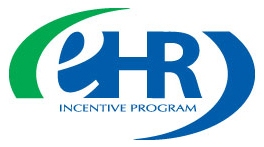
As tedious as they may seem, Meaningful Use Audits are here to help physicians. The Centers for Medicare and Medicaid Services (CMS) have given out tens of billions of dollars in Meaningful Use incentive payments in just the past few years as an effort to encourage providers to adopt EHRs and other cutting-edge technologies that improve care and reduce the costs associated with health care for patients.
The most important part of preparing and surviving these audits is making sure that you are keeping track of documentation you will have to present for the audit in advance – and remember to keep them somewhere that you can access easily. Here are a few more tips for making the audit process less stressful.
Do Your Research
The required documentation for these audits is complicated, and it’s best to go straight to the official source for information on what you’ll need to present. CMS’ Frequently Asked Questions site is a great resource for checking the documentation required for an audit.
[related_content]CMS also has thorough guides for both Stage 1 and Stage 2 of the process that go over the documentation needed for different phases of the audit.
Respond to your Audit Request Quickly
You have a short limit of 14 days to respond to an audit notice, which makes keeping your books in order even more important so that the audit is quick and painless.
It’s All in the Details
Make sure to be detailed in providing supporting documentation for the objectives that you respond to. Put yourself in the auditor’s shoes: will there be any doubt that you have actually fulfilled the objective? This often means using screenshots and written statements to support your claims. Also, make sure that you are fully meeting the thresholds set by MU standards – that means if the threshold is 70%, 69% will not do.
Everything Has to Go on Paper
Don’t assume that anything you tell the auditor in person is officially going into the audit – you must submit all information in documentation, or it doesn’t count.
Physicians Should Be Involved
Don’t just let the manager of your practice handle everything – physicians should be involved and aware of what is being reported to make sure everything is correctly 100% accurate. You should run frequent reports detailing the information required for audits so that when you have to do one for CMS, they seem routine.
Use Your Electronic Health Record System Wisely
First, make sure your EHR system meets certification requirements, and that any updates you make to it do not affect your certification. The Office of the National Coordinator’s website contains all information about EHR system certification.
You should also take advantage of your EHR vendors’ knowledge: they are usually experts in how to use the system to complete audits.
Don’t Forget About the Security Risk Analysis
You should have your HIPAA Security Risk Analysis done before you attest, but since this is a part of the process that often confuses physicians, don’t be afraid to refer to tools like this one to complete it.

